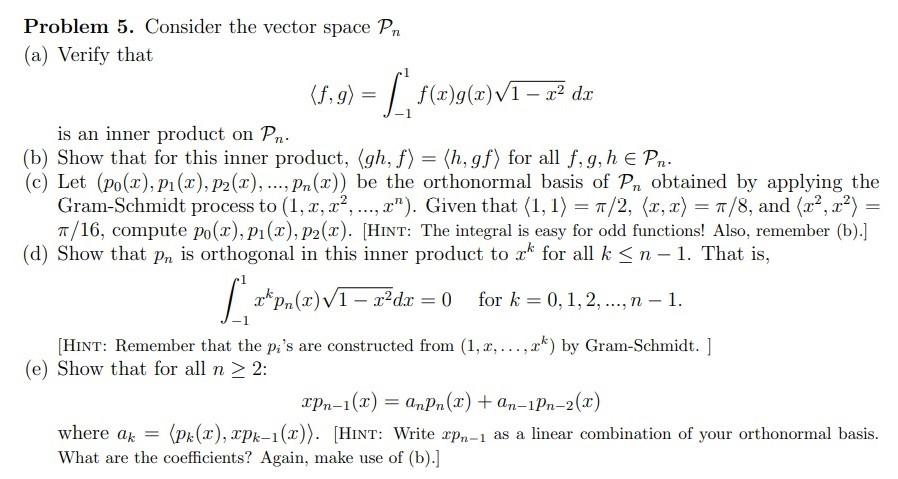Answered step by step
Verified Expert Solution
Question
1 Approved Answer
Problem 5. Consider the vector space Pn (a) Verify that (5.9) = [5(0)9(x)V1 22 de is an inner product on Pn. (b) Show that for

Step by Step Solution
There are 3 Steps involved in it
Step: 1

Get Instant Access to Expert-Tailored Solutions
See step-by-step solutions with expert insights and AI powered tools for academic success
Step: 2

Step: 3

Ace Your Homework with AI
Get the answers you need in no time with our AI-driven, step-by-step assistance
Get Started


